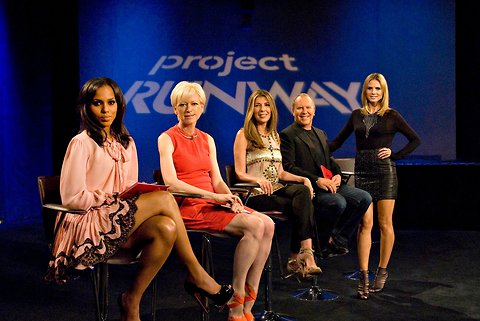Peer reviewing does not mean just marking grammatical errors or punctuation problems on someone’s draft and calling it good. It doesn’t mean saying authoritatively whether things are right or wrong, good or bad.
Peer review means voicing your thoughtful but critically aware opinion about whether various elements of your peers’ writing are effective or could be improved.
Let me illustrate.
Hot Date
Imagine that you have just gotten dressed for a hot date and you ask your roommate if your outfit is a good choice or not. Because it’s such an important date, you’ve decided to go a little outside your comfort zone and are wearing something more on the edge of fashion than you usually do, and you’re really not sure whether you’re pulling it off.

Be honest: are these pants too outrageous?
Photo by Mariya Georgieva on Unsplash
You are relying on your roommate to give you an unbiased opinion, to be honest and to save you from potentially looking like a fool.
There are a few things your roommate might say:
You look incredible! I mean, I cannot put into words how amazing you look! I wouldn’t change a thing! You’re so hot right now!
Unalloyed praise smacks of insincerity—you won’t believe your roommate if he or she has only good things to say, and your outfit won’t be improved by such a response.
Really? That’s your idea of fashion? Are you hoping this guy/girl doesn’t call you later? Did you really think paisley/plaid/stripes/feathers/fringe was the right look for your skin tone/weight/height/eyes/age?
Biting criticism hurts too much. Not only will it undermine the confidence and self-worth of the hearer, but it will shut down any trust between the two of you, guaranteeing you never ask that roommate’s advice again.
Your shoe’s untied.
Tiny help or an over-attention to unimportant details misses the point. At best, you’ll leave thinking your roommate was too busy to actually help you; at worst, you’ll believe he or she doesn’t care about you. Either way, you’re left wondering whether your outfit was a good choice.
Hmm, let me think. I really like the cut/color/pattern of that shirt in relation to how you’ve done your hair/makeup/jewelry/nails. It brings out your best features in a really good way. I’m not so sure about the pants, though. Have you considered [this wardrobe item]? I can’t put my finger on exactly what isn’t working here—it could be the shoes rather than the pants. You’re on the right track, and I can see what you’re going for—a kind of Matt Damon/Scarlett Johansson/Chris Hemsworth/Jennifer Lawrence thing—let’s go try a few things and see if we can’t make it work.
Sincere, thoughtful, detailed, respectful, supported, unauthoritative-but-critical feedback is what’ll give you confidence when you walk out the door and what’ll keep you coming back to that roommate again and again for advice. It’s the stuff true friendship is built out of, but it’s the very hardest feedback of all to give, for it requires a person have a discerning eye, an informed opinion, and loads of tact.
Same at School
It’s the same when you peer review someone’s writing:
- If all you do is say everything is good, great, wonderful, your reader won’t believe you and won’t be able to make the improvements he or she is anxious to make.
- If you are overly critical and not very tactful about it, you’ll hurt your reader and probably paralyze him or her into being unable to make positive changes.
- If you only comment on a few rather trivial things and leave larger, more urgent issues unexamined, you risk sending your reader on his or her date with well-tied shoelaces but with his or her fly wide open, metaphorically speaking.°
- However, if you manage to hone your critical ability to spot trouble in your peers’ writing while at the same time using a great amount of tact, tempering your honest criticism with sincere praise, you’ll prove yourself to be a rare friend indeed.
Peer Review Like a Champ
Becoming a good judge of fashion is more than honesty and tact. You also have to develop an eye for what works well in a given situation. I remember the first time I saw an episode of Project Runway°. By the end of the episode, I was sure I knew which dress would win and which designer would be sent home—and I was spectacularly wrong.

As the season continued and I carefully watched and considered the judges' commentary, however, I slowly began to understand what they understood: the mostly unspoken language of taste. Such a language and the judgments made with it is largely subjective, and I disagreed with the judges plenty of times. But I also developed an ability to defend my judgments, to articulate and defend my position.
That same skill is essential for being a good peer reviewer. You have to develop your taste in writing and your ability to explain why you think some writing works and why other writing does not. Without that, no one will benefit from your opinion, however honestly and tactfully you share it.
Developing that skill is a long-term effort, so here are a few pointers you can use in the meantime when reviewing a peer's work:
- You don’t have to determine whether something is right or wrong, good or bad. It’s enough to just to say that something is unclear to you or that it rubs you the wrong way—so long as you explain why as best you can. You’re a peer, not an authority figure. Chances are that the author had the same misgivings about the passage in question and is validated to know you do to.
- You don’t have to prescribe a fix for every problem. Remember, you're not the author, so it's not your job—nor is it your place—to fix things. If you’ve explained why something doesn’t work for you or why it seems ineffective, the author probably has enough information to figure out how to improve that thing on their own.°
- Praise is as helpful as criticism. Authors need to know what is working just as much as they need to know what isn't. So pointing out that something in the draft is strong or effective or beautiful isn't just kind and tactful; it's useful (so long as you’re being honest and you explain why you think it is so).
Conclusion
Remember: a good peer reviewer is a rare and valuable thing. The job of an editor is essentially that of a peer reviewer, only paid—and they are generally paid quite well.




